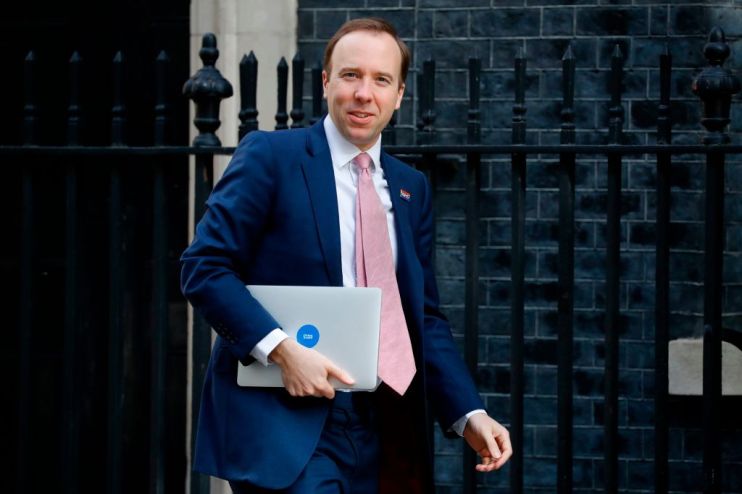Coronavirus: Government optimistic UK will hit 100,000 daily testing target

The government is likely to hit or come close to its daily coronavirus testing target of 100,000 today, according to housing minister Robert Jenrick.
As of yesterday morning, the UK had carried out 80,000 tests – 20,000 short of the original target set by health secretary Matt Hancock a month ago.
Hitting the goal would lay the foundations to comprehensively test, track and trace people going forward, Jenrick told BBC Breakfast today.
“I don’t have the figures yet, they’ll be published later today, but it looks like we’ll either meet the target or come close,” he said.
“It’s an important stepping stone to more testing.”
Coronavirus testing is expected to increase in the coming days as the government ramps up drive-through testing sites and home testing kits.
The government is also targeting people aged over 65 and essential workers, including teachers, for testing.
“It’s an important stepping stone. We’ve now built the beginnings of the network that we’ll need of testing, tracking and tracing for the next phase of fighting the virus.”
Johnson and his government have been criticised not only for not quickly stepping up testing, but also for moving slowly on bringing in a lockdown and for a lack of protective equipment for health workers.
With more than 26,000 deaths, Britain is set to be one of the worst-hit countries in Europe and it is all but inevitable the government’s response to the outbreak will be subject of an inquiry afterwards.
Opposition Labour leader Keir Starmer renewed his criticism of the prime minister in an interview with the Evening Standard newspaper, saying Johnson had been “slow, slow at every turn”.
He called for testing to be ramped up to a quarter of a million tests every 24 hours and for 50,000 contact tracers to be deployed to keep the nation safe.
Britain carried out more than 81,000 tests on Wednesday, a leap from early last month when only 10,000 people were being tested in what the country’s national testing strategy coordinator, John Newton, called “an extraordinary achievement”.